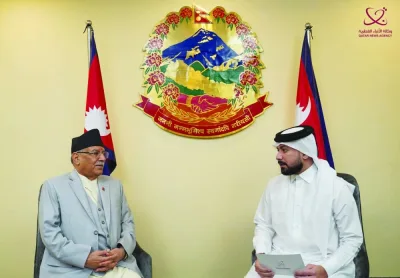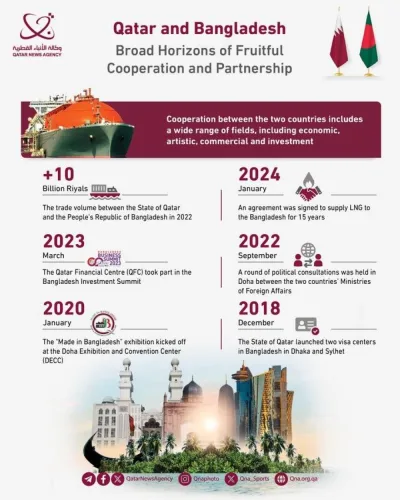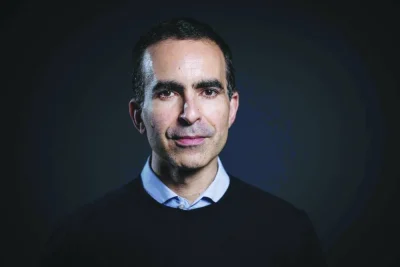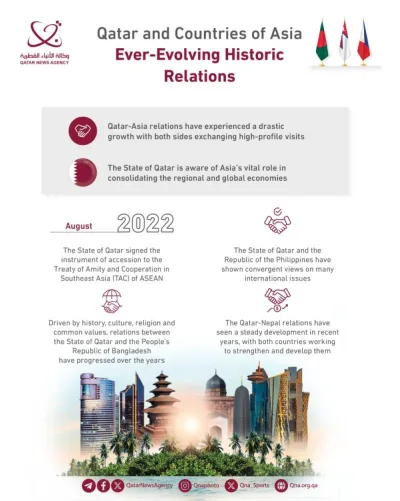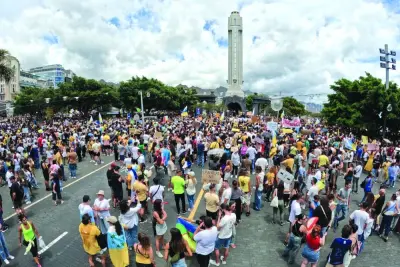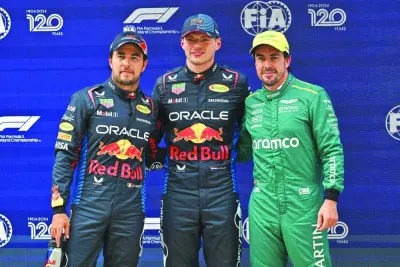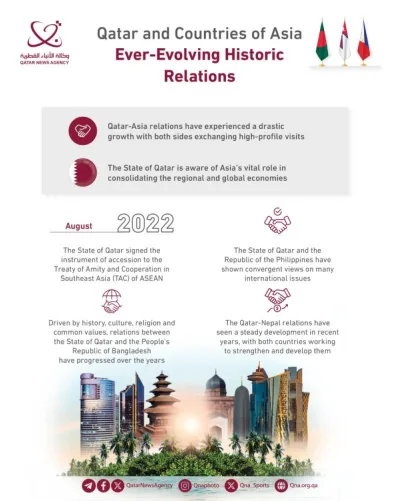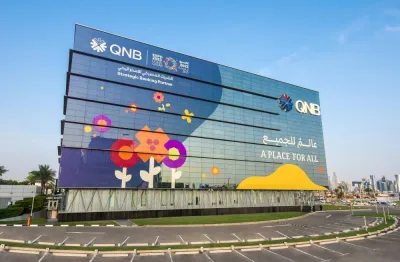Nepal's Prime Minister Pushpa Kamal Dahal said the visit of His Highness the Amir Sheikh Tamim bin Hamad al-Thani to the country is a testimony to the strength and friendly relations and cooperation between the two nations.This visit will broaden relations between Doha and Kathmandu and lead them to new horizons, Dahal added, describing the visit by His Highness the Amir as "historic."In an interview with Qatar News Agency (QNA), Dahal expressed his firm belief that the visit of His Highness the Amir will elevate relations between the two countries to new heights, adding: "We are equally hopeful that several agreements will be signed during this visit. Furthermore, in-depth discussions on important areas of bilateral cooperation will also be pivotal in enhancing our cooperation in various areas."Dahal expressed confidence that the visit of His Highness the Amir will herald a new beginning for friendship and that it will set another milestone in the diplomatic relations between the two nations.The prime minister stressed the importance of enhancing cooperation between the two countries in areas including health, education, infrastructure development, and economic empowerment.He hailed the level of development Qatar is witnessing at various levels, as it represents an exemplary experience, adding, "We are impressed to see Qatar's phenomenal development."Nepal looks forward to learning from Qatar's experience in this regard, especially since it aspires to achieve better development indicators within a short period of time," he added."It is my understanding that we have many avenues in which we can collaborate and learn from each other's development efforts," Dahal said, adding, "we can forge pragmatic collaboration for developing partnership for assisting in bridging the gap in the developmental processes."He pointed out the importance of future co-operation and collaboration between the two countries in regional and multilateral forums to serve the general interest of humanity, including unifying efforts to confront climate change.Dahal said a collective voice can be raised, and efforts in regional and multilateral forums can be unified to confront climate change, adding, "It is high time to consolidate our individual efforts into collaborative ones for the benefit of humanity. I have been raising the issue of climate change at different forums, and I look forward to working closely with like-minded countries in the future."Dahal expressed appreciation for the humanitarian support provided by Qatar to Nepal, especially during the 2015 earthquake. "Qatar has always lent generous support in the humanitarian sector in Nepal. The government of Qatar has provided invaluable support and goodwill to Nepal in the aftermath of the 2015 earthquake as well as in instances of other natural disasters," he said.Dahal extended his thanks to the government of Qatar for its assistance during the Covid-19 pandemic, expressing his heartfelt gratitude for taking care of Nepali workers in Qatar during the pandemic.The prime minister hailed the role played by Qatar in resolving conflicts and promoting peace and security around the globe, emphasising his country's appreciation for Doha's efforts in resolving differences through negotiations and diplomacy.He underscored Nepal's belief that peace should prevail for humanity to prosper.Given the turbulent situation in the Gulf region, the diplomatic acumen and leadership by Qatar in thawing tensions is highly commendable, he added.Dahal expressed his country's "high regard for Qatar for playing a significant role as a mediator in the ongoing conflict in Gaza," adding "the facilitation for negotiations and securing temporary ceasefires in the past has been of great importance."I have been keenly following the situation in the Middle East. We are worried about the scenario of further escalation in hostilities and the worsening plight of the civilian population. We wish for an end of war and restoration of peace in the region as soon as possible," he added."It is indeed heartening to see Qatar's leadership pitching hope and arduously trying to bring the warring parties to table to negotiate for peace and humanity," the premier pointed outThe Gulf region has its own political, economic, and cultural significance, Dahal said adding: "It is my ardent hope that the region will come to a long-term solution while embracing the values of peaceful co-existence."
Thursday, May 09, 2024
|
Daily Newspaper published by GPPC Doha, Qatar.

